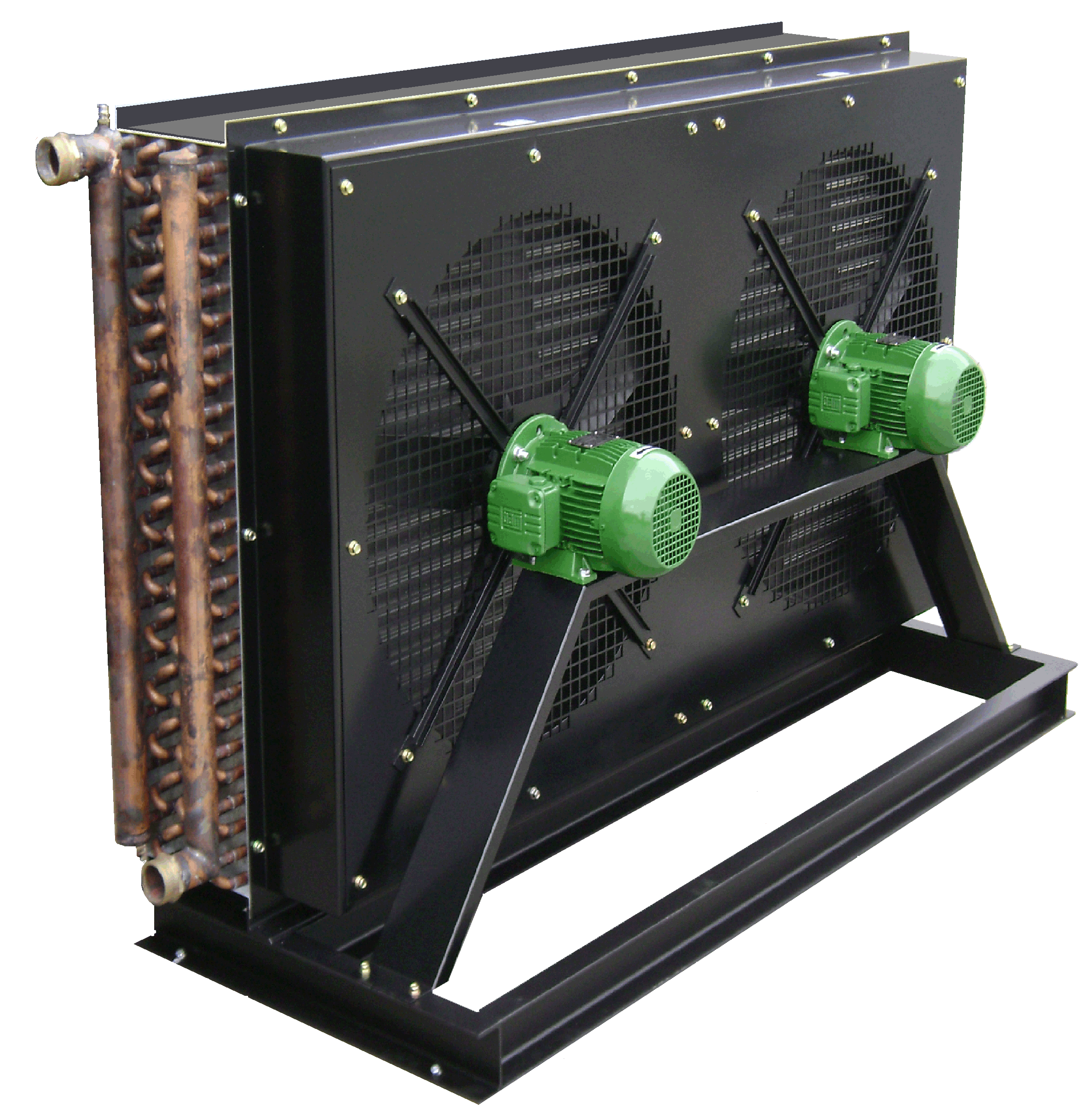Finned Coil Maintenance
The primary considerations for the maintenance of Heating and Cooling coils are cleanliness of the heat exchange surfaces and freedom from corrosion and vibration. Even in well filtered air handing systems coils can become clogged with fluff and dust. These deposits can become a source of external corrosion if allowed to accumulate.
Cleaning Frequency
The frequency of cleaning required will be dependent on the efficiency of the filtration system. Systems using fresh air taken from street level in city areas will require cleaning more often than systems using air from high intakes in low pollution areas. If excessive deposits are allowed to collect they can become difficult or impossible to remove, especially with coils having close fin spacings.
Cleaning Methods
Cleaning can be accomplished with hand brushing or compressed air jet. Pressure washers must be used with care as some are capable of bending the aluminium fins. In more severe cases degreasing type cleaning solutions or steam cleaning may be the best method. Cleaning is best carried out from the air off side of the coil first to avoid pushing contaminates further into the fin pack.
Cleaning Solutions
Proprietary coil cleaning solutions should be used with care as strong acid or alkaline can rapidly damage the fin to tube bond where dissimilar metals are in contact. Use only the recommended concentration and rinse promptly and thoroughly to remove all traces of the solution. In all cases measures should be taken to ensure that dislodged dust and dirt are not allowed to remain in the system.
Internal Cleaning
Internal cleaning is normally not necessary in closed systems. If required it should only be carried out with reverse flushing using clean water. If boilers or other heat exchangers in the system require “pickling” or other aggressive cleaning solutions the coils must be isolated from the system during this process.
Coil Frame
The coil frame and pipe supports should be inspected for rust or corrosion before the coil checked. Excessive vibration or expansion and contraction may result in failure of the coil due to work hardening and cracking of the copper tubes.



